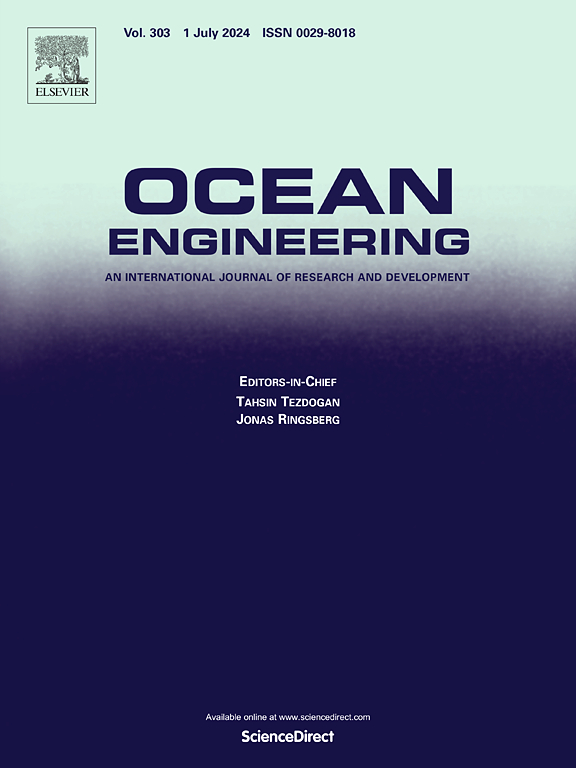一种激流预测/预报模型,采用由相位分辨波流模型预先模拟的激流可能性
IF 4.6
2区 工程技术
Q1 ENGINEERING, CIVIL
引用次数: 0
摘要
本文提出了一种新的激流预测模型,并介绍了该模型的实现,以产生激流风险指数序列。利用随波浪和潮汐性质变化的激流可能性分布来评价当前风险指数。这些可能性是通过使用相位分辨波流模型FUNWAVE预先进行的数百次数值模拟得出的。在不同的波浪和潮汐条件下,根据特定海岸可能的海洋情景,进行了离岸流的数值模拟。风险指数可以通过将海洋观测或预报输入到一个结合激流可能性分布的函数中来计算。利用2021年夏季海云台海岸视频监控记录的事件快照,对实时观测的离岸流风险指数的性能进行了验证。因此,可以推断,在发生重大离岸流的大多数时间,离岸流风险指数可以支持适当和有用的警告标志。本文章由计算机程序翻译,如有差异,请以英文原文为准。
A rip-current prediction/forecast model employing likelihoods of rip currents beforehand simulated by a phase-resolving wave-current model
This article addressed a new rip-current prediction model by introducing its implementation to produce a sequence of rip-current risk index. The present risk index was evaluated by using the distributions of rip-current likelihoods varied according to wave and tidal properties. The likelihoods were derived from hundreds of in-advance numerical simulations using the phase-resolving wave-current model, FUNWAVE. The numerical simulations of rip currents were conducted with various wave and tidal conditions based on possible ocean scenarios at a specific coast. The risk index can be computed by inputting ocean observations or forecasts into a function combining the distributions of rip-current likelihoods. The performance of the rip current risk index using real-time observations was checked with event snapshots of the video-monitoring records during the summer of 2021 at the Haeundae coast. As a result, it was inferred that the rip-current risk index could support appropriate and useful warning signs at most of the time when significant rip currents occurred.
求助全文
通过发布文献求助,成功后即可免费获取论文全文。
去求助
来源期刊

Ocean Engineering
工程技术-工程:大洋
CiteScore
7.30
自引率
34.00%
发文量
2379
审稿时长
8.1 months
期刊介绍:
Ocean Engineering provides a medium for the publication of original research and development work in the field of ocean engineering. Ocean Engineering seeks papers in the following topics.
 求助内容:
求助内容: 应助结果提醒方式:
应助结果提醒方式:


